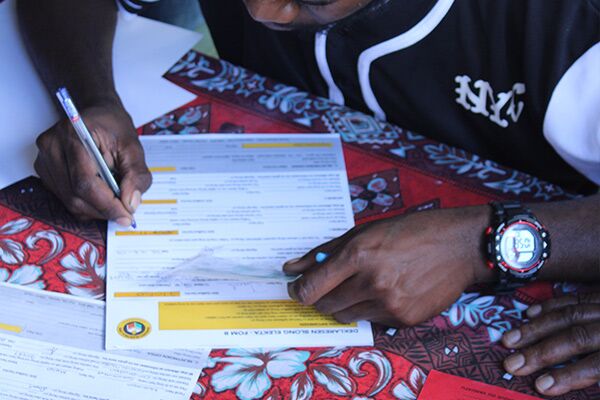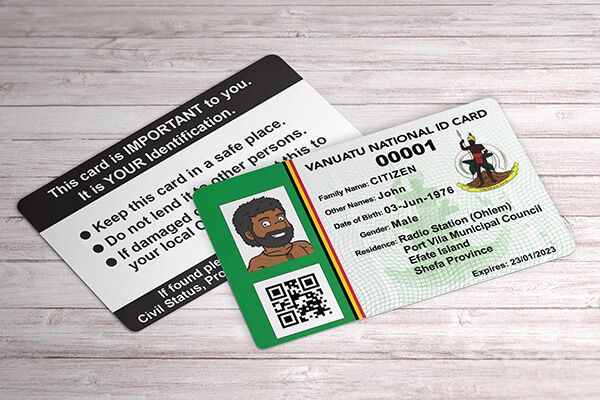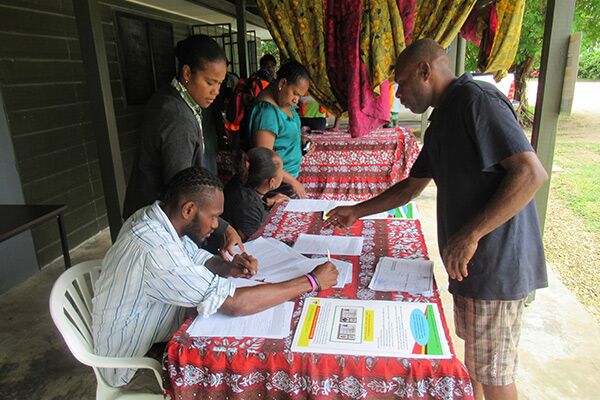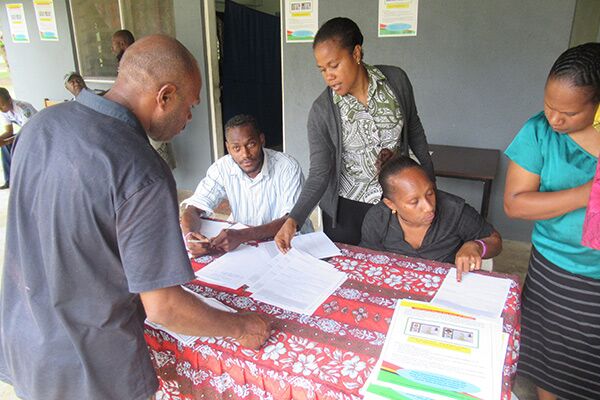VOTER ELIGIBILITY
In order to be eligible for registration in the electoral list for a polling district, the person has to have been a resident in that polling district over three months at the time of the preparation of the electoral list. According to the law, where there is doubt as to whether or not a person is resident in a polling district, the registration officer will inquire as to the residential status of that person and make a report and corresponding recommendation to the Principal Electoral Officer (PEO).
When an eligible person is resident in a polling district which is outside the registration area for which he is carrying out a registration, and provided the person has not been registered elsewhere, the registration officer will provide him with an application to be registered in the polling district of his place of residence.


WHERE TO REGISTER
The VEO establishes RCs around the country according to pre-established schedules, so applicants should be vigilant as to the registration schedules in their areas.
The VEO office in Port Vila also registers potential voters, continually throughout the year.
Applicants can go to any registration center around the country, but have to provide proof of residency in the in the polling district they intend to be registered at.
It is highly recommended, however, that applicants go to register at the RC in their polling districts.
REGISTRATION PROCEDURES
Everyone must include in their forms two witnesses who reside in the same residential area as themselves, and who also have a valid birth certificate. One of the two witnesses must be from a different household but from the same polling district, preferably a neighbor. There is no fee for registering as a voter.
Voters are registered to vote at a designated polling station, closest to their place of residence. If voters change their residence and their new address corresponds to a different polling station (even if it is within the same constituency), the voter then needs to re-register.
Once registered, the voter can only vote with a valid National ID Card for identification purposes. Registration is continuous all year round, however six weeks before polling day, voters' addresses and polling station will be fixed in the system. Citizens are responsible for keeping their data updated in the system, as the polling station will be allocated according to the voter's address.
Voters who have misplaced their National ID Card will be able to have it replaced for a fee. Issuing of replacements is a continuous process, but it also stops six weeks before polling day.
Anyone who believes they should be allowed to vote and whose name is not on the voters list can ask the PEO to review their information. If they are still not happy with the PEO’s decision, they can appeal to the EC. The EC’s decision cannot be appealed to any other body.


WHAT IS "JOINT REGISTRATION”?
In 2017 the government of Vanuatu decided to introduce a “national ID card” to all its citizens. At the same time, the government also decided to link the civil and voter registration database, in order to improve the quality of the voter register and build trust around it, as well as creating synergies among various government agencies.
These decisions resulted in the launching of a nationwide national ID card registration effort, jointly coordinated by the Department of Civil Registry and Vital Statistics and the VEO. Pilot projects of “joint registration” were designed and implemented in the island of Mota and Port Vila in 2017 and in Luganville in 2018. Currently, joint registration is still taking place in Luganville and Port Vila, with plan to expand to other parts of the country in 2019-2020.
The pilot “joint registration” exercises involve registration centers manned by officers from both the Civil Registry and the VEO. The applicant will need to provide information pertinent to both civil and voter registration. In order to be registered, the applicant must present a valid birth certificate; if the applicant doesn’t have a birth certificate, he/she should register for one at the corresponding Civil Registry office. At the end of the process, the citizen details will be in both the civil registry data base and the voter register database; the registered voter is provided with both a voter card and a national ID card.
WHEN TO REGISTER
The VEO schedules opening of registration centers in various provinces at different times, persons wanting to register should be attentive to the VEO schedule. The VEO HQs in Port Vila is opened throughout the year for registration. Voters who have lost their voter cards can also have them replaced throughout the country at RCs, according to the schedules organized by the registration officers; in Port Vila’s VEO HQs, the issue of replacement (“duplicate”) cards takes place all year long. All card replacements stop being issued two weeks before polling day.




